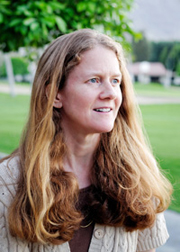Abstract:
We used the Ark infrastructure to support an ambitious collaboration with MIT to map the rich mesh of interconnection in the Internet, with a focus on congestion induced by evolving peering and traffic management practices of CDNs and access ISPs, including methods to detect and localize the congestion to specific points in networks. We undertook several studies to pursue two dimensions of this challenge. First, we developed methods and tools to identify interconnection borders, and in some cases their physical locations, from comprehensive Internet topology measurements from many edge vantage points. Then, we developed and deployed scalable performance measurement tools to observeperformance at thousands of interconnections, algorithms to mine for evidence of persistent congestion in the resulting data; and a system to visualize the results. We produce other related data collection and analysis to enable evaluation of these measurements in the larger context of the evolving ecosystem: quantifying a given network service providers's global routing footprint; and business-related classifications of networks. In parallel, we examined the peering ecosystem from an economic perspective, exploring fundamental weaknesses and systemic problems of the currently deployed economic framework of Internet interconnection that will continue to cause peering disputes between ASes.
Bio:
 Kimberly Claffy ("kc claffy") is founder and director of the Center for Applied Internet Data Analysis (CAIDA), a resident research scientist of the San Diego Supercomputer Center at UC, San Diego, and an Adjunct Professor in the Computer Science and Engineering Department at UC, San Diego. Her research interests span Internet topology, routing, security, economics, future Internet architectures, and policy. She leads CAIDA research and infrastructure efforts in Internet cartography, aimed at characterizing the changing nature of the Internet's topology, routing and traffic dynamics, and investigating the implications of these changes on network science, architecture, infrastructure security and stability, and public policy. She has been at SDSC since 1991 and holds a Ph.D. in Computer Science from UC San Diego.
Kimberly Claffy ("kc claffy") is founder and director of the Center for Applied Internet Data Analysis (CAIDA), a resident research scientist of the San Diego Supercomputer Center at UC, San Diego, and an Adjunct Professor in the Computer Science and Engineering Department at UC, San Diego. Her research interests span Internet topology, routing, security, economics, future Internet architectures, and policy. She leads CAIDA research and infrastructure efforts in Internet cartography, aimed at characterizing the changing nature of the Internet's topology, routing and traffic dynamics, and investigating the implications of these changes on network science, architecture, infrastructure security and stability, and public policy. She has been at SDSC since 1991 and holds a Ph.D. in Computer Science from UC San Diego.
About the WATCH series:
Transforming today's trusted but untrustworthy cyberinfrastructure into one that can meet society's growing demands requires both technical advances and improved understanding of how people and organizations of many backgrounds perceive, decide to adopt, and actually use technology; WATCH aims to provide thought-provoking talks by innovative thinkers with ideas that illuminate these challenges and provide signposts toward solutions; The series is jointly organized by NSF's Computer Science and Engineering (CISE) and Social, Behavioral, and Economic (SBE) Directorates and sponsored by the CISE Secure and Trustworthy Cyberspace (SaTC) Program; Talks will be recorded and made available over the Internet;